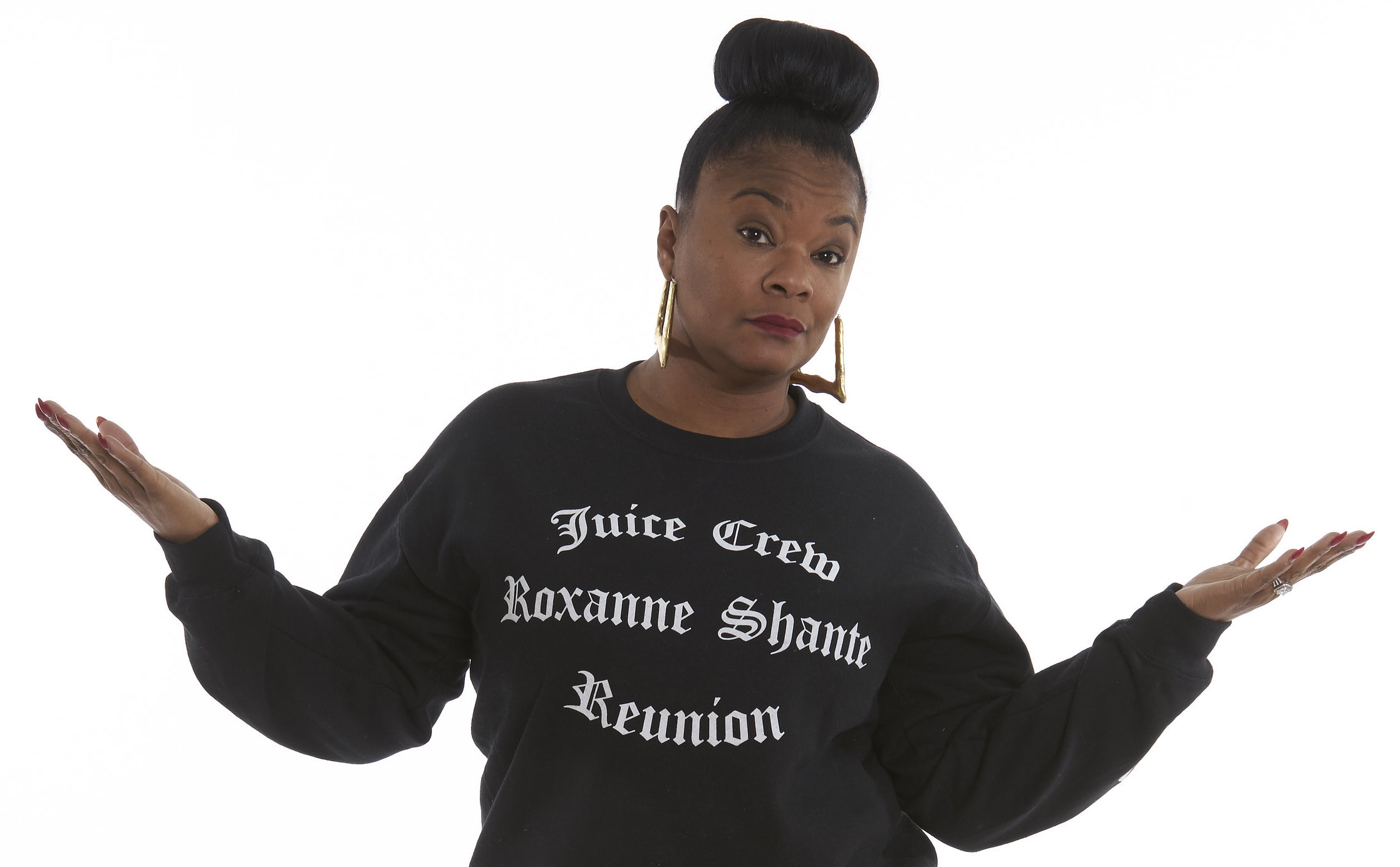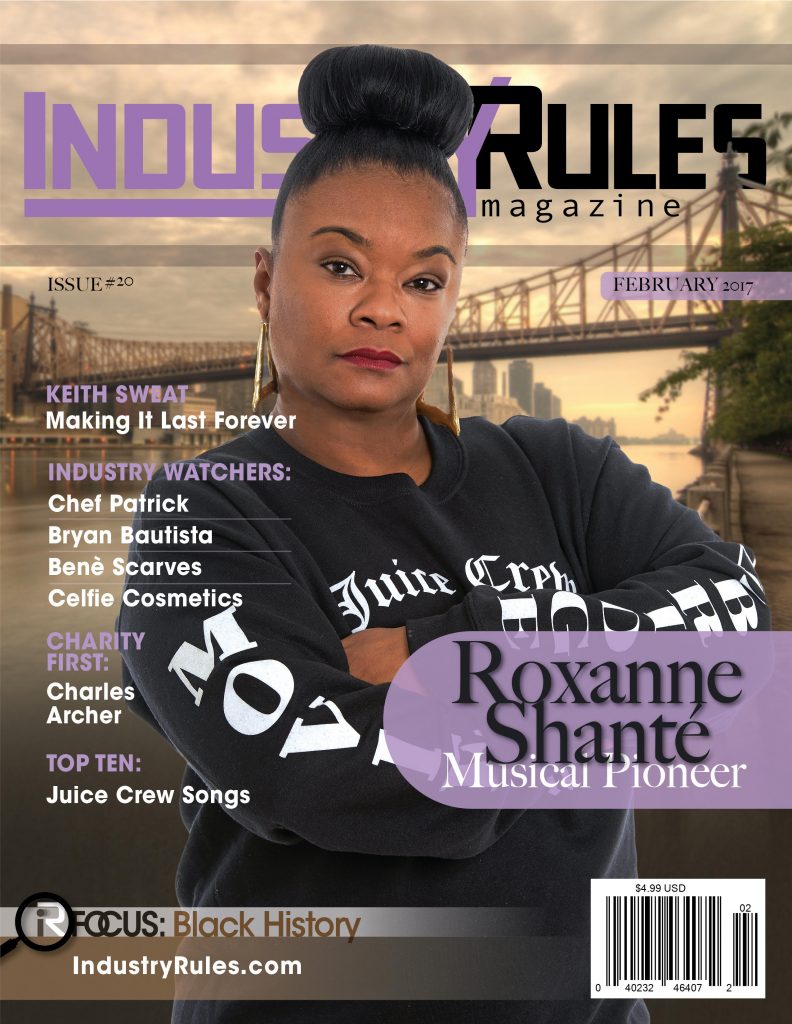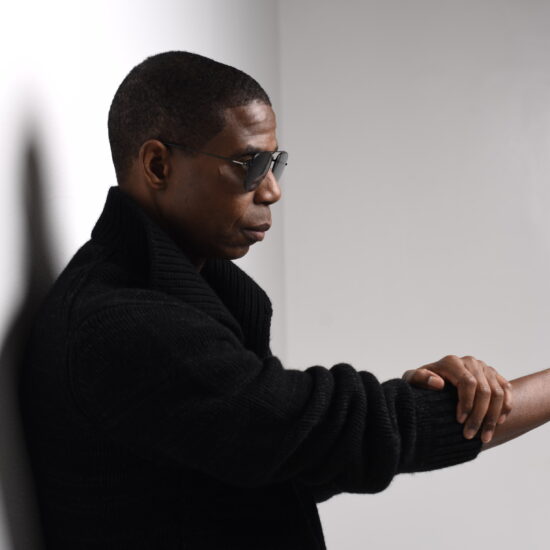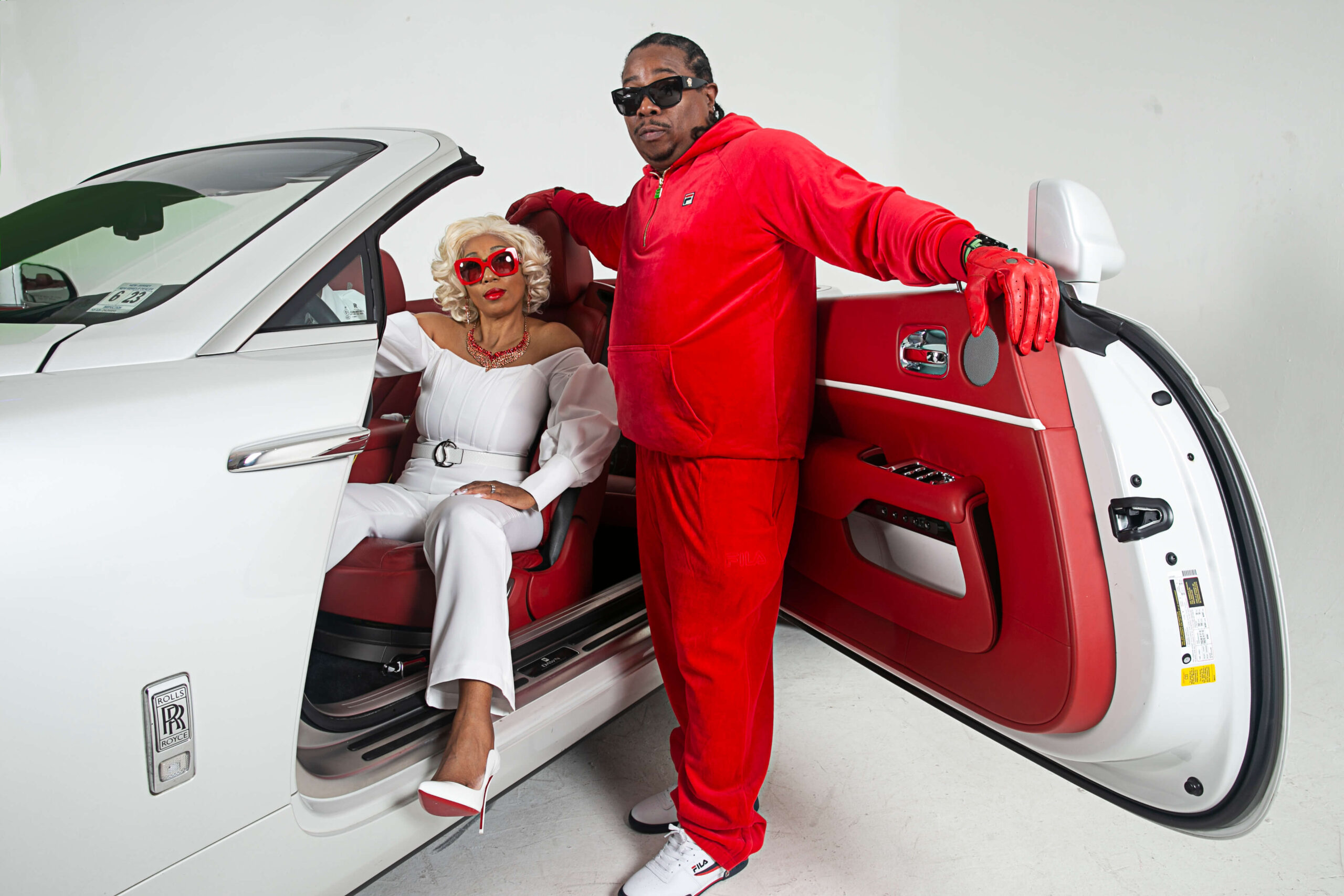Not every woman facing adversity and looking to beat the odds of systemic profiling, marginalization, and the type of discrimination that robs select social groups of equal opportunity have access to 3.3 million marchers to execute well organized nationwide protests. Especially in 1984 in the New York Queensbridge housing projects, a time when males largely dominated the rap and hip hop music industry. At the young age of 13, Lolita Gooden, better known as the iconic Roxanne Shanté, had a battle cry of her own that launched her rap career resulting in a platinum single, gold albums, and further immersion into the school of hard knocks.
Days before the highly anticipated 2017 Sundance Film Festival screening of Roxanne, Roxanne, a biopic on her life story co-produced by Forest Whitaker’s ‘Significant Productions’ and Pharrell Williams’ ‘I Am Other’, Industry Rules Magazine got some one-on-one time with the lady MC at her magazine cover shoot in New York City. During the interview, Roxanne talked life lessons about the evolution and casualties of “battling” as the then established practice of publicized slights and character assassinations that an entire era in music has been built on. Rule #1 of the 1980s rap battle, Roxanne recalls, “if you want to be the best, you have to beat the best.”
Among the first to kick down gender doors by pioneering intuitive branding in response to U.T.F.O.’s unanticipated hit Roxanne, Roxanne, she is best known for Roxanne’s Revenge, her no holds barred clap back in response to U.T.F.O.’s Roxanne, Roxanne. In stark comparison to performers of age that would later dominate female rap as a sign of the changing times (in response to a number of social changes), the young artist appeared in her world premiere video sporting a classic casual long sleeve, relaxed fit sweater, stylish ponytail and minimal makeup. The artist commented on the importance of “letting talent speak for itself” and, despite a popular public dis (likened to today’s ‘slut shaming’) by KRS One, at the height of the battle she remained aware of the importance of protecting her identity and her body throughout her career. For better or for worse, the then 14 year old mother and fierce natural performer joined the big leagues as a household name recalling her observation of gender lines with those brave enough to battle, “women are more aggressive because there is so much on the line.”
The film Roxanne, Roxanne, reveals the ticket out of Queensbridge was ultimately complicated and was, at times, downright grim. When asked to describe herself as she settled in with the styling team, Roxanne, who is now a two-time breast cancer survivor, said she wears many hats and identifies with survivors, what it takes to be a single mother, and being a sister to many by way of mentorship. Looking back, Roxanne felt she was able to handle the adversity that came with naming names but noted being a caretaker of six sisters while navigating an unsafe, violent relationship and being an underage child star commodity wasn’t child’s play, “How you feel about yourself counts.”
Roxanne’s chance encounter with Marley Marl on her way to do laundry so many years ago, resulted in an unimaginable success and a host of cautionary tales having perfectly aligned her to be a mentor. With the final touches of vixen red applied in stark contrast to her signature 1980s sweatshirt, Roxanne shared her excitement about her annual Pink Ponytail breast cancer awareness events and the Mind Over Matter (M.O.M.) program she launched with her husband to mentor high school students. The program hosts special guests and known artists which Roxanne coins “edutainment” covering topics from “hygiene to hip hop and boys to bankruptcy.”
A final phrase sums up the courage it took Roxanne to break through a seeming impenetrable glass ceiling of success, to travel beyond stigma and cultural limits, and define a lucrative career on her own terms: self-love. Now, added to her legacy of rhyme and reason for memorable milestones, Roxanne can add feature length biopic to her list of accomplishments along with the highlight of being cancer-free. Whether battling to be heard and to level playing field has changed much since the 1980s for solo women or mission-driven masses or not, Roxanne’s take-aways on a woman’s right to bark and bite are priceless and have aged well with time.




